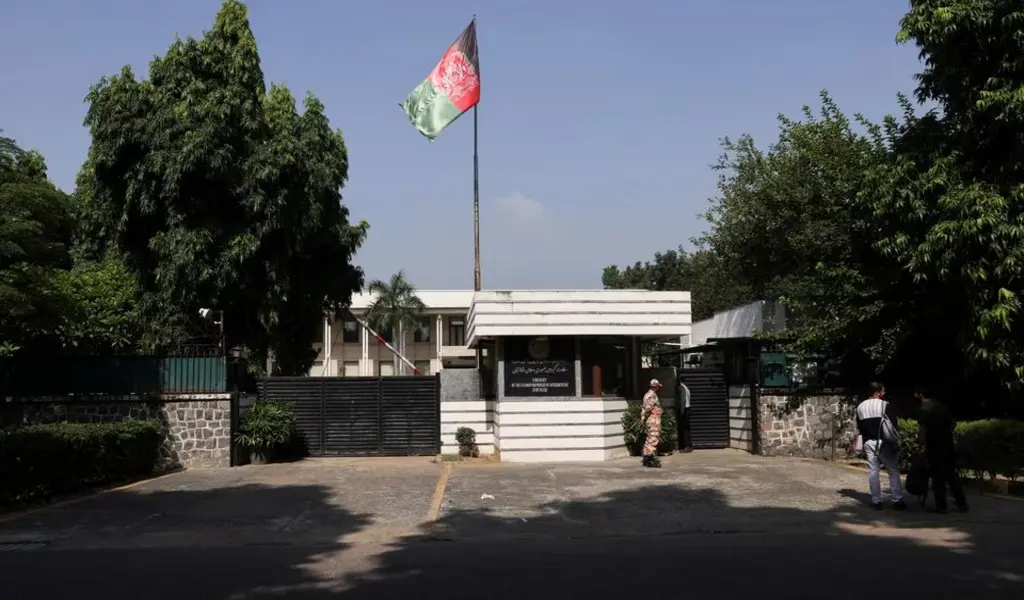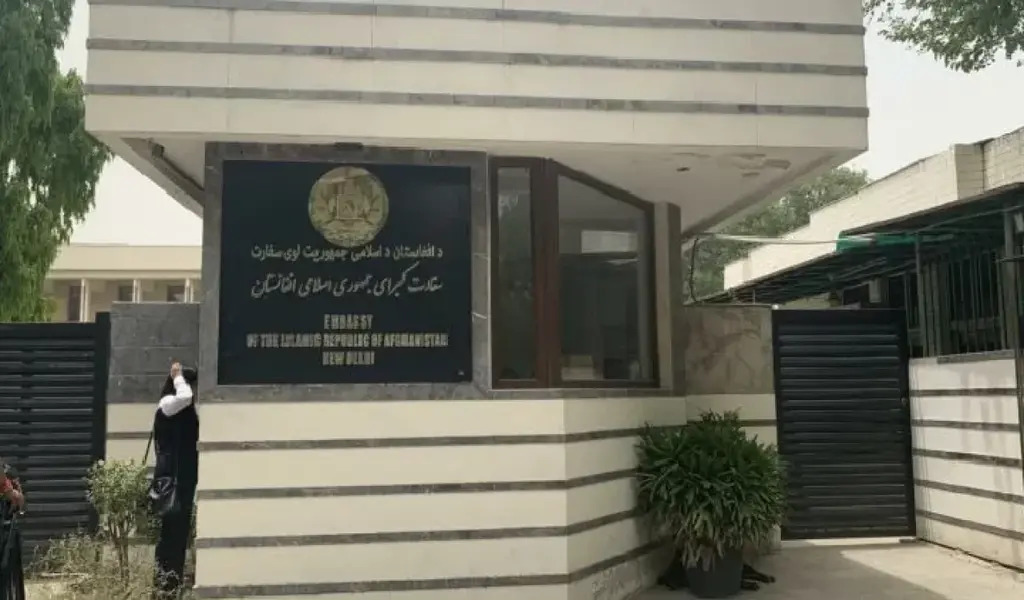News
Afghan Embassy In India To Cease Operations Amid Diplomatic Standoff

(CTN News) – In a move that underscores the evolving diplomatic landscape in South Asia, the Afghan Embassy in India has announced its intention to cease all operations in the Indian capital, New Delhi, by the end of this month.
The decision was communicated to the Indian External Affairs Ministry via a letter, prompting a thorough examination by Indian authorities.
Background:
Since the Taliban’s swift takeover of Afghanistan in August 2021, India has not officially recognized the Taliban-led government.
This stance has characterized India’s foreign policy approach towards the war-torn nation, leading to a complex situation regarding its diplomatic relations with the Afghan government.
India had evacuated its embassy staff from Kabul ahead of the United States’ withdrawal from Afghanistan, effectively ending its diplomatic presence in the country.
The Afghan Embassy in New Delhi had continued to function with personnel appointed by the previous Afghan government led by Ashraf Ghani.
This arrangement had been permitted by Indian authorities and was viewed as an essential link between the two nations during a time of uncertainty.
Afghan Embassy Current Developments:
However, recent events have led to significant challenges for the Afghan Embassy in India.
The Afghan ambassador has been absent from India for several months, and a notable number of diplomats have left for third countries, reportedly seeking asylum. This exodus of diplomatic staff has raised concerns about the embassy’s ability to maintain normal operations.
The Letter: According to reports, the Afghan Embassy’s decision to cease operations is rooted in the perceived lack of “diplomatic consideration and systematic support” from the Indian External Affairs Ministry.
The letter detailing these grievances has reportedly been shared with Indian authorities, shedding light on the underlying issues that have strained bilateral relations.
India’s Position:
India has maintained a cautious approach towards recognizing the Taliban government, emphasizing its commitment to following the United Nations’ lead on this matter.
This approach reflects India’s desire for a coordinated international response to the evolving situation in Afghanistan.
It’s important to note that India has previously extended humanitarian aid to Afghanistan, sending relief materials such as wheat, medicines, COVID-19 vaccines, and winter clothing to help alleviate shortages.
Furthermore, in June of the previous year, India dispatched a team of officials to its embassy in Kabul as a sign of engagement with Afghanistan.
Conclusion:
The decision by the Afghan Embassy in India to cease operations underscores the complex and evolving diplomatic dynamics in the region.
It highlights the challenges faced by nations in dealing with the post-Taliban Afghanistan, as well as India’s cautious approach to recognizing the Taliban government.
As India examines the letter from the Afghan Embassy, the future of diplomatic relations between the two nations remains uncertain, with the international community closely watching how this situation unfolds.






























